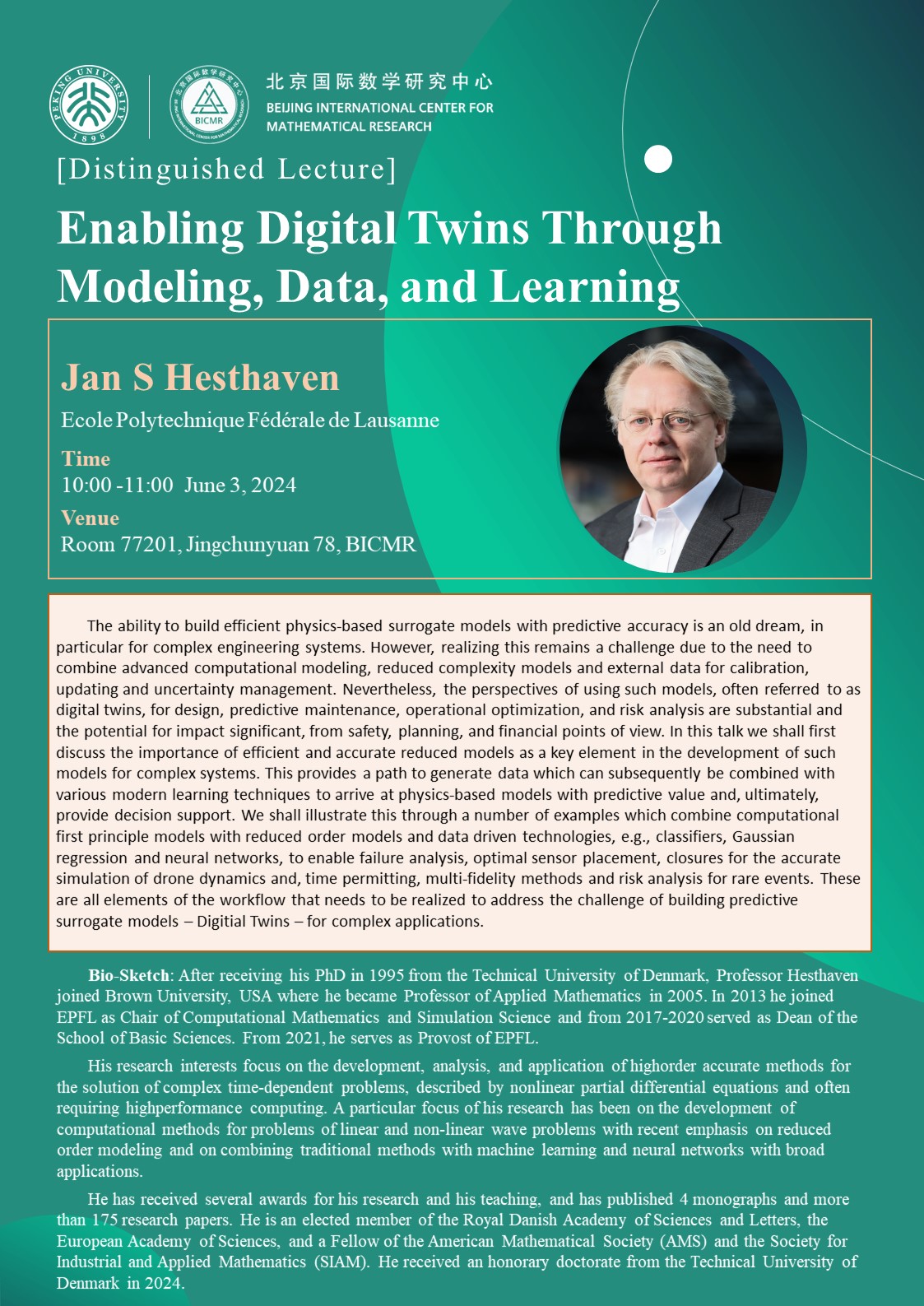[Distinguished Lecture]Enabling Digital Twins Through Modeling, Data, and Learning
Speaker(s): Jan S. Hesthaven(Ecole Polytechnique Fédérale de Lausanne Lausanne)
Time: 10:00-11:00 June 3, 2024
Venue: Room 77201, Jingchunyuan 78, BICMR
Abstract:
The ability to build efficient physics-based surrogate models with predictive accuracy is an old dream, in particular for complex engineering systems. However, realizing this remains a challenge due to the need to combine advanced computational modeling, reduced complexity models and external data for calibration, updating and uncertainty management. Nevertheless, the perspectives of using such models, often referred to as digital twins, for design, predictive maintenance, operational optimization, and risk analysis are substantial and the potential for impact significant, from safety, planning, and financial points of view.
In this talk we shall first discuss the importance of efficient and accurate reduced models as a key element in the development of such models for complex systems. This provides a path to generate data which can subsequently be combined with various modern learning techniques to arrive at physics-based models with predictive value and, ultimately, provide decision support.
We shall illustrate this through a number of examples which combine computational first principle models with reduced order models and data driven technologies, e.g., classifiers, Gaussian regression and neural networks, to enable failure analysis, optimal sensor placement, closures for the accurate simulation of drone dynamics and, time permitting, multi-fidelity methods and risk analysis for rare events.
These are all elements of the workflow that needs to be realized to address the challenge of building predictive surrogate models – Digitial Twins – for complex applications.
Bio-Sketch:
After receiving his PhD in 1995 from the Technical University of Denmark, Professor Hesthaven joined Brown University, USA where he became Professor of Applied Mathematics in 2005. In 2013 he joined EPFL as Chair of Computational Mathematics and Simulation Science and from 2017-2020 served as Dean of the School of Basic Sciences. From 2021, he serves as Provost of EPFL.
His research interests focus on the development, analysis, and application of highorder accurate methods for the solution of complex time-dependent problems, described by nonlinear partial differential equations and often requiring highperformance computing. A particular focus of his research has been on the development of computational methods for problems of linear and non-linear wave problems with recent emphasis on reduced order modeling and on combining traditional methods with machine learning and neural networks with broad applications.



